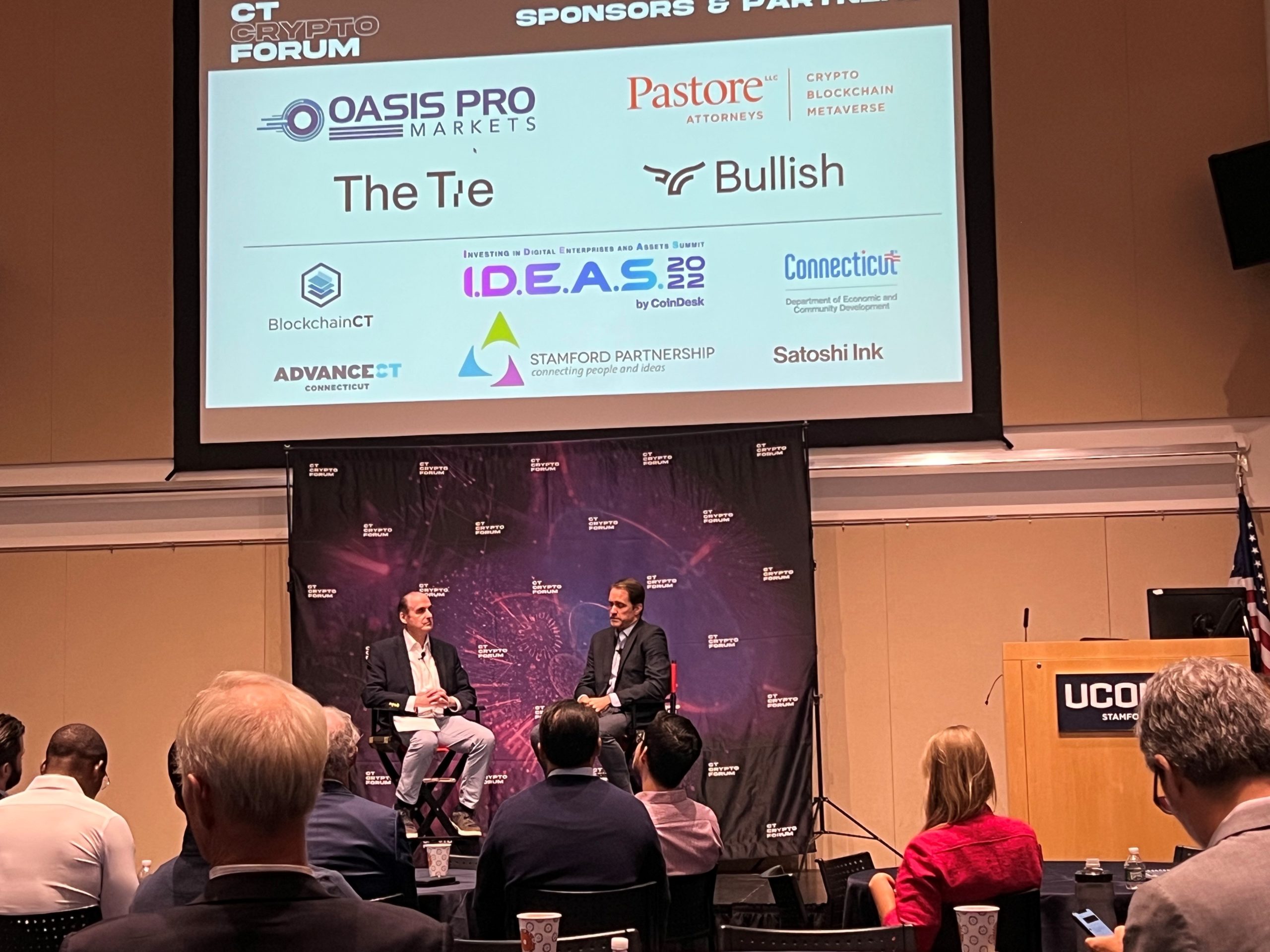The most recent cryptocurrency winter has ended, and the next bullish cycle has begun.
But not everything has been forgotten.
The government may attempt to regulate this burgeoning industry through the courts, as more tokens, exchanges and venture capital firms fail to pass muster. The short list of collapses in 2022—BlockFi, Three Arrows Capital, Celsius Network, TerraUSD/Luna and FTX—has sent chills through the most thrill-seeking investors.
As a member of the Connecticut Crypto Forum, which Pastore LLC has sponsored since last May, I have watched cryptocurrency startups succeed, while others have struggled.
On the surface, funding seems to be a big obstacle. However, garnering the needed financial support for a cryptocurrency startup is more of a series of actions than a single event—especially during these challenging times.
So, are you looking to fund a cryptocurrency startup? Let’s start with a summation: Don’t go out too early.
Now, here are four more insights to improve your chances for success:
Business Law Insight: Leverage A Big Problem
The problem with having a solution is that you first need a problem.
So, start there.
Bitcoin serves as an alternative payment system free of government control where people can send money over the internet. Ethereum created a place in a new financial ecosystem as a platform for programmatic contracts and applications. Besides being digital assets, they both have something else in common: The entire world is their market.
When developing a solution for a problem, you must think big and make sure it’s scalable. The target market must be worth 10s of millions in revenue per year. If it generates $250,000 annually, you will go nowhere.
The cryptocurrency idea may solve a problem for title insurance in real estate. It’s a two trillion-dollar industry. Maybe it solves a record-keeping issue in health care. That’s another enormous potential market.
Because people buy the story before they buy the stuff, articulating the problem and the solution in a succinct, meaningful way will monetize your effort.
Business Law Insight: Produce A+ Documents
Producing top-notch documents should put you on the short list with potential investors. Your lawyer will write this one with help from the company’s leadership team.
A private placement memorandum (PPM) is not necessarily required depending on the nature of the offering, but it’s essential. Unlike a business plan that serves as a marketing document, the PPM is straight to the point. It is a legal document that informs investors of securities for sale. Several key aspects are addressed in the document, such as a description of the securities, risk factors, biographies on the management team, financial statements and, perhaps, important contracts.
This document will go a long way towards attracting a network of cryptocurrency investors. You definitely don’t go out to the marketplace in general because it is not amenable to crypto-type investments and general solicitation may run afoul of the securities exemption you are relying on. You will need a group of savvy investors who understand and have experience with digital assets—not a scattershot approach in the marketplace.
Business Law Insight: Build A Credible Team
In the beginning, investors don’t buy ideas. They purchase a team.
Ideas are only worth something if they can be executed. So, choose wisely.
Build a team of professionals who understand the cryptocurrency space and who can leverage relationships within the industry. This type of network, albeit small at inception, will provide instant credibility for your startup.
Next, create a strong compliance program with legitimate personnel. Start with a chief financial officer or controller with cryptocurrency experience, as well as anti-money laundering expertise. Leverage established credentials, such as ALMA, CPA, CFA, to guide the selection process.
To create more oversight, select qualified board members with experience in finance and controls, as well as regulation to name a few areas. Make them part of governance by empowering them to manage the compliance committee and audit committee. If you are raising money domestically, they will ensure you don’t stray into offshore associations that could taint the enterprise.
Business Law Insight: Convince A Bank
You need an investment bank on your side. In fact, you can’t raise real money without one. You are beyond friends and family now.
Keep in mind that an investment bank with a well-regarded broker dealer business unit will conduct due diligence on your startup. To pass the test, your financial house needs to be in order.
Let’s begin with the basics, such as bylaws and resolutions. There is the certificate of incorporation or the certificate of formation if it’s a limited liability corporation. Don’t forget the operating agreement, including business-partner assignments, a business plan and a financial forecast.
The next phase includes your financials. To be more specific, timely financial statements are required because anything less begs for more questions and suspicion. Accountants need to be part of this mix—and an attorney with cryptocurrency experience to bring everything together.
(Christopher Kelly is an attorney at Pastore who has practiced corporate, transactional, fund employment and banking law for more than 30 years at sophisticated levels. He has worked on complex transactions aggregating in value of more than $10 billion, involving private stock and debt offerings, mergers and acquisitions and assets deals.)










